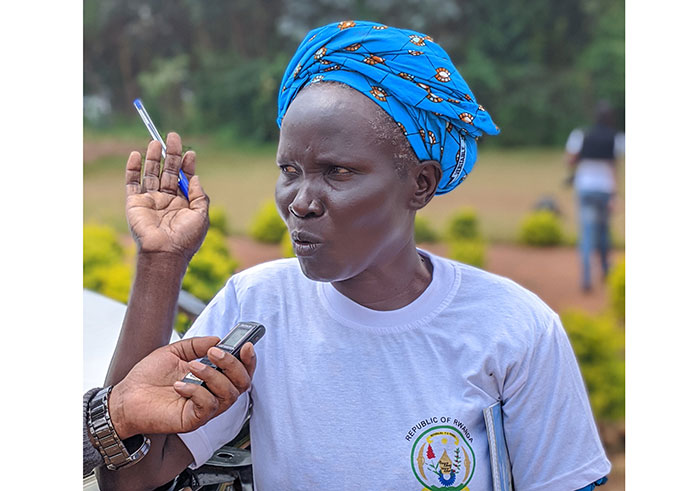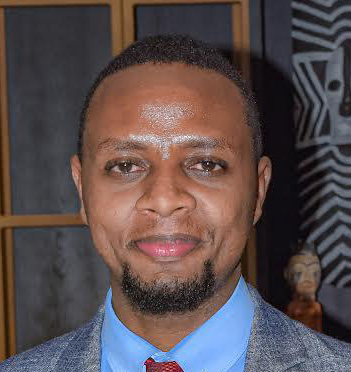

In an interactive session in a communal hall, Edward Rucogoza, a facilitator, teaches everything from unity and reconciliation, to fighting genocide ideology, and introduction to the country’s development programmes.
He’s interacting with men and women repatriated from the eastern Democratic Republic of Congo (DRC) since mid-December last year following military campaign against Rwandan militia that have operated in the neighbouring country for over two decades.
Majority of these are dependants of fighters for these militia groups.
A 22-year old raises up and says he was born in DRC, but never had he been satisfied with the kind of life he’s been living.
"I’ve grown up with rage of not being able to attend school and connecting with my family,” he says.
Another repatriated Rwandan who identified himself as Celestin Siboniyo in his 50’s also stands up and says he regrets he fled to the DRC.
"Since 1994 when I arrived in Congo, we have lived in constant wars that I had never experienced before. I personally tried three times to come back home but it was always impossible,” he narrates.
It is through these dialogues that the repatriated Rwandans, most of whom have been in DRC since 1994, get to open up and confess their previous wrong choices they made.
A few steps away, children are singing and dancing to traditional songs, part of the training sessions to help them understand their culture and traditions.
At Nyarushishi Transit Centre in Rusizi District in Western Province, hundreds of repatriated Rwandans share stories of suffering and being fed lies that kept them captive in Congolese jungles.
These are some 1991 dependent s of militiamen repatriated from the DRC after being separated from anti-Rwanda militia operating in DRC since 1994.
They are composed of 122 men, 784 women and 1,085 children.
Repatriation
They were repatriated as part of the efforts by the DRC to dismantle anti-Rwanda armed groups for regaining peace and security in the eastern region.
DRC forces (FARDC) repatriated Rwandan ex-combatants and their families who say they were held hostage by these negative forces.
Julienne Mutuyimana, a 21-year old mother of two, was forced to return home in December last year after Congolese forces attacked anti Rwanda militias in an operation that was aimed to neutralise all armed forces.
"The truth is that there’s nothing good about living a life characterised by regular attacks. I looked forward to come back home but there was no way to do it,” she recounts as she breastfeeds one of the two little babies.
Both her parents died in Congolese jungles. Her husband was separated from her when the recent military operations in December broke out.
"All this is a result of the circumstances of holding to the wrong narrative that things were supposedly worse in Rwanda,” she says.
Mutuyimana does not know exactly where her family lived before they moved to DRC, but she says she’s determined to build a new life in her country.
"I don’t want to go back to Congo, all I want is to trace my family members and I’m sure I will meet them,” she notes.
Liberta Mukaruziga, formerly a resident of Kigoma commune now Ruhango District, also returned alongside hundreds of others.
"We left to Congo in 1994 and lived in Bukavu camps until 1996 before going to Masisi. However, due to internal conflicts we ended up in the jungles,” the former teacher narrates.
"What makes me feel bad is how I became from being a professional teacher to a smallholder farmer who’s not even stable,” she adds.
Mukaruziga highlights that people like her were fed lies by those who have genocide ideology and those with personal interests.
Reintegration
Her and many others are now accommodated at Nyarushishi Transit Centre, undergoing civic education courses related to the vision of the government, unity and reconciliation, and Ndi Umunyarwanda programme.
According to Francis Musoni, the Secretary General of Rwanda Demobilisation and Reintegration Commission (RDRC), the repatriated Rwandans also receive psychosocial councelling as well as appraised on the country’s development programmes.
"When we receive them here, we give them all the basic requirements starting with medical support and counselling, allowing them to stabilise. We also educate them about national development and their contribution towards realising that,” he says.
This, he adds, enhances their quick reintegration as they get used to the general situation in different sectors of development in the country.
They are also helped to trace families of those who may not know them as well as reunite with those families.
These returnees will spend at least three months preparing to be re-integrated fully.
This process also enables authorities to continue screening them to know their records to be able to identify those who may committed the Genocide against the Tutsi.
So far, Musoni says, at least five people who are believed to have committed the genocide are already facing justice.
Background
When the genocidal regime collapsed in 1994, the then government engineered a mass departure of Citizens, including perpetrators of the 1994 Genocide against the Tutsi into neighbouring Zaïre, now DRC.
The genocidal army and its militia network then regrouped and formed what was then called the Army for the Liberation of Rwanda (ALiR), intent on waging a war to return to power and complete their genocidal mission.
In 2000, ALiR merged with another extremist group and formed the FDLR, with Forces Combattantes Abacunguzi (FOCA), as its armed wing.
With time, internal friction Led to various other splinter groups – including the CNRD/FLN which was founded in 2016 – but all of them upheld something in common – genocide ideology


